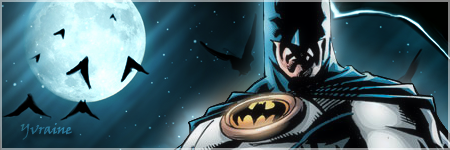To say in the video´s introduction that manga are broader, or have more genres (Batman alone is regularly presented in dozens of genres), or that they are deeper rooted in the Japanese culture than "Western" comics (a very broad term too) in the US or EU is... problematic.
Superman officially faugh Muhammad Ali in the 70s and the new
Ms. Marvel (Kamala Khan) is about the immigrant experience of a Pakistani-American, besides the super-heroics. Her creator got to meet
President Obama due to her accomplishments!
These are just mere superhero comic, but I will mention
Danny the Street, who was now brought back by the My Chemical Romance founder Gerard Way (see what sort of people write comics?), and
Wonder Woman just joined the UN (as the 4th fictional character).
US troops were supplied with her´s and other (DC) books during WW2 and she is more importantly a widely recognized icon of feminism around the world.
Indie books as
Stuck Rubber Baby, the exceptionally recognized works of
Robert Crumb (he did heaps of highly regarded hard-core porn but name me even one "recognized" hentai), the genre bending EU works of
Moebius or DC´s Vertigo line (i still can´t believe that Peter Milligan´s
Enigma got published by WB) show how varied the medium can get.
Noone will write a decades lasting comic about restaurant culture and true romance books barely sell / exist anymore (they were the biggest genre of the 50s), so there are notable differences, yet all 3 international comic publishing forms go about equally deep and broad. Japan is the modern (print) sales winner, as they didn´t suffer a catastrophic market crash, as the US did in the 90s, and they don´t cost you an arm and a leg, as EU comics due to their high production cost. (Asterix is still serious business all over Europe, even in print.)
These are the criteria i would use for a proper contrast. US comics also went into a “cinematic age”, with sales around 100.000 - 25.000 copies for a "successful" book and prices of about 3-4$ a 20 pages issue, but the adaptations now rule Hollywood and many major tv stations with an iron fist. How many people are currently talking about THE
Walking Dead kill (it´s 1 to 1 from the books) and how many comparisons between Zack Snyder and let´s say... Hitler have you seen on major internet sites for daring to bring a comic accurate DC universe on the silver screen. Even
lambchopsil made fun of BvS in a recent poll, just out the blue. People got VERY loud when Snyder deviated from the universally recognized Christopher Reeve Superman, as people take their Superman VERY seriously it seems. The highly criticized Attack on Titan films + prequel show though almost got a free pass in the end. These actually sucked and they bastardized the most successful new manga of this century, yet the hate came as it left, and Shinji Higuchi now redeemed himself with Shin Godzilla.
How many people will you further see in Japan with a One Piece / Titan shirt and how many will you with a Batman / Superman shirt all over the world?
The isn´t a conversation about adaptations but western comics characters are still as internationally recognized and beloved as ever. Just in a deferent form and the pioneering manga of the 40s / 50s are historically rooted in western comics too.
Feel free to disagree on everything but have fun proving your theses scientifically.
Here are also the
9 Best Selling Comic Series Of All Time but you need to contrast the list to the up to date
list of best-selling manga. There are mistakes and the numbers are outdated. 1991´s X-Men No.1 is further the bestselling single comic ever.
PS: Western Comics have (official) footnotes too. Such as callbacks to older issue, cultural context and so on. Fan-comics / Fanzines are nothing especially Japanese either and everyone can now be a "writer" due to the internet.
I lastly read scanlations of EU books every week, so even scanlations aren´t necessarily a manga only domain. The manga ones came first though.
Last edited by residentgrigo at 3:20 pm, Oct 25 2016________________
I also read EU/US comics and am a librarian.
Manga-Masters,
My ANN-Lists + Imdb




